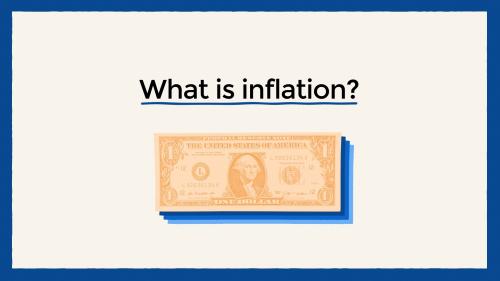As another stopgap funding measure to keep the U.S. government in operation works its way to President Obama’s desk, Congress continues to wrangle over cuts to the federal budget. The congressional battles are focusing primarily on cuts to domestic spending, but many outside experts believe only a combination of new revenues and spending cuts can make a real dent in the nation’s record deficit, and begin to reduce the massive federal debt.
On March 16, Adam Looney of The Hamilton Project took your questions in a live web chat on the budget negotiations. David Mark, senior editor at POLITICO, moderated the discussion.
The transcript of this chat follows.
12:30 David Mark: Welcome to the chart. Let’s get started.
12:30 [Comment From Leann: ] Both Democrats and Republicans have proposed cuts to non-defense discretionary spending. How much will these cuts help close our budget deficit?
12:32 Adam Looney: If our budget deficit is the Titanic, then non-defense discretionary spending is kind of like the deck chairs. We can rearrange them all we like—or eliminate them entirely—and it won’t right the ship. This isn’t a political observation, it’s an arithmetic point: our current tax system does not produce enough revenue to pay for currently-scheduled levels of Social Security, Medicare, Medicaid, Defense, and interest, let alone everything else in the budget.
12:32 [Comment From Marie: ] Who stands to lose from recently-proposed cuts to federal spending?
12:38 Adam Looney: First, sharp cuts to spending in the current economic environment have the potential to slow the economic recovery. In testimony this month to Congress, Fed Chairman Bernanke said that a $60 billion cut to spending would translate into roughly 200,000 fewer jobs. (Private sector estimates are even more dire.)
Second, if these cuts are to investments with longer-run payoffs—like education, health, environment, or infrastructure—then they may also burden future Americans by reducing their labor productivity and quality of life.
12:39 [Comment From Gregory G.: ] If increased tax revenues are part of the solution, how should the government go about raising revenues?
12:46 Adam Looney: One idea is to trim tax expenditures, which are subsidies and spending programs that operate through the tax system, because they both drain tax revenues and increase the adverse effects of the tax system on economic activity. Each year we spend around $1 trillion on these tax expenditures—6 percent of GDP—which means tax rates need to be that much higher to maintain revenues. Cutting back on these tax expenditures is somewhat of a win-win because it would allow the government to keep more of the revenue it already raises, while reducing the size of government and the economic influence of the tax system.
12:48 [Comment From Bob (NJ): ] Two weeks ago] you posted a graph showing that the median wage of men has fallen [28%]. How is the budget discussion intertwined with the long-run decline in wages?
12:58 Adam Looney: Yes, we looked at the long-run trend in earnings of men and found that the annual earnings of the median male aged 25-64 had fallen about 28 percent over the last forty years. (The link is here) The decline has roughly two causes: stagnant wages for those who work and falling employment among less-skilled workers.
Over the long run, government policies can affect employment and earnings through a number of channels. To give one important example, a rising share of prime-age men are receiving disability insurance through the Social Security Disability Insurance program, which basically requires recipients to stop working in order to get benefits. This is both expensive from a budget perspective but more importantly is also inconsistent with modern accommodations for workers with disabilities. Improvements to the system could allow for greater participation in the labor force among workers with disabilities while actually saving money.
1:00 [Comment From Jeremy Bale: ] I often hear conservatives argue that cutting taxes actually produces more revenue and would help to cut the deficit. Is that true? How would that work?
1:06 Adam Looney: The idea that tax cuts can pay for themselves has been largely discredited among mainstream economists. In order for this idea to be true, taxpayers would need to be extraordinarily responsive to tax rates by working and earning enough new income in response to a tax cut so that on net tax revenues went up. Repeated empirical studies have found that people’s incomes just don’t change much when tax rates tax change. When tax rates fall, so do tax revenues.
1:06 David Mark: Thanks for the chat, folks.


Commentary
Web Chat: The Federal Budget, with Adam Looney
March 16, 2011